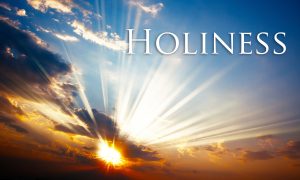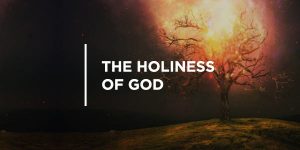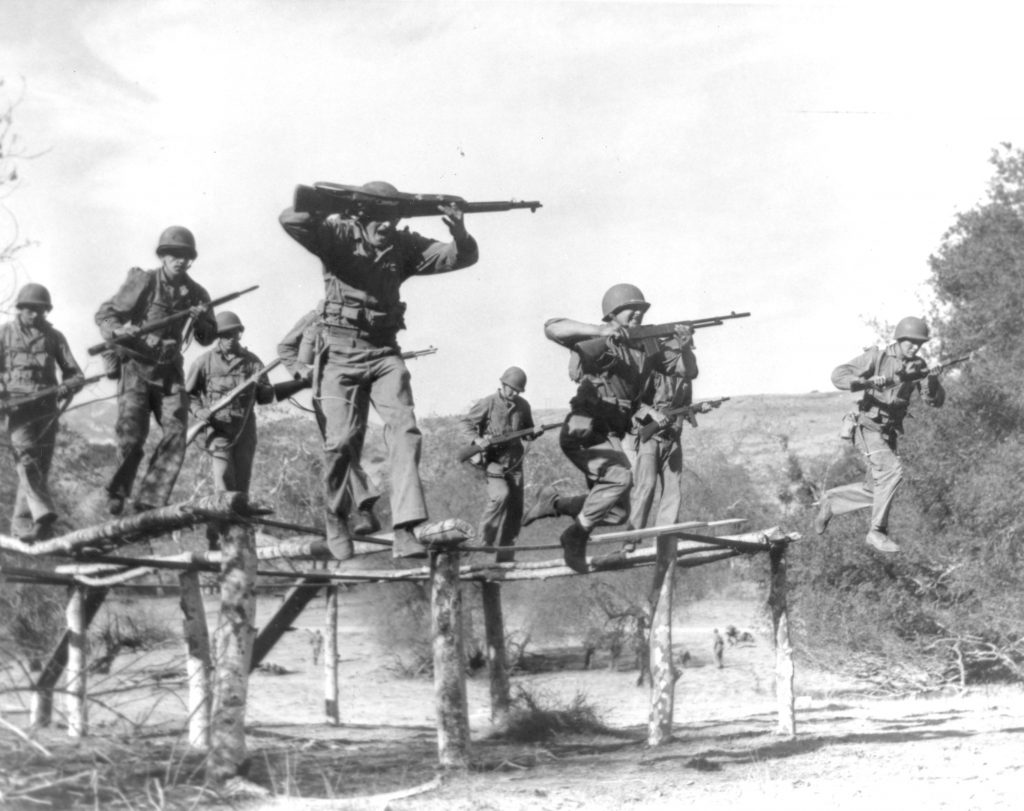Editor’s Note: Few Preachers had a larger impact on Early America than Jonathan Edwards (1703-1758). His preaching was one of the major catalysts for the First Great Awakening. In addition, he was the grandfather of Aaron Burr, the third Vice President of the United States, and most famous for killing Alexander Hamilton in a duel.
And an highway shall be and a way, way, it shall be called the way of holiness; the unclean shall not pass over it. — Isaiah 35:8
This book of Isaiah speaks so much of Christ, gives such a particular account of the birth, life, miracles and passion, and of the gospel state, that it has been called a fifth Gospel. In this chapter is contained a glorious prophecy of the evangelical state: We have a description of the flourishing state of Christ’s kingdom in the two first verses, in the conversion and enlightening of the heathen, here compared to a wilderness, and a desert, solitary place: The wilderness and the solitary place shall be glad for them; and the desert shall rejoice, and blossom as the rose. It shall blossom abundantly and rejoice, even with joy and singing; the glory of Lebanon shall be given unto it, the excellency of Carmel and Sharon, they shall see the glory of the Lord, and the excellency of our God.
 The great privileges and precious advantages of the gospel, in the five following verses wherein the strength, the courage, the reward, the salvation, the light and understanding, comforts and joys, that are conferred thereby, are very aptly described and set forth: Strengthen ye the weak hands and confirm the feeble knees. Say to them that are of a fearful heart, Be strong, fear not; behold, your God will come with vengeance, even God with a recompense; he will come and save you. Then the eyes of the blind shall be opened, and the ears of the deaf shall be unstopped. Then shall the lame man leap as an hart, and the tongue of the dumb sing: for in the wilderness shall waters break out, and streams in the desert , And the parched ground Shall become a pool, and the thirsty land springs of water: in the habitation of dragons, where each lay, shall be grass with reeds and rushes.
The great privileges and precious advantages of the gospel, in the five following verses wherein the strength, the courage, the reward, the salvation, the light and understanding, comforts and joys, that are conferred thereby, are very aptly described and set forth: Strengthen ye the weak hands and confirm the feeble knees. Say to them that are of a fearful heart, Be strong, fear not; behold, your God will come with vengeance, even God with a recompense; he will come and save you. Then the eyes of the blind shall be opened, and the ears of the deaf shall be unstopped. Then shall the lame man leap as an hart, and the tongue of the dumb sing: for in the wilderness shall waters break out, and streams in the desert , And the parched ground Shall become a pool, and the thirsty land springs of water: in the habitation of dragons, where each lay, shall be grass with reeds and rushes.
The nature of the gospel, and way of salvation therein brought to light. First, the holy nature of it, in the eighth and ninth verses:
And an highway shall be there, and it shall be called the way o holiness; the unclean shall not pass over it, but it shall be for those the wayfaring men, though fools, shall not err therein. No lion shall be there, nor any ravenous beast shall go up thereon, it shall not be found there; but the redeemed shall walk there.
The joyful nature of it, “And the ransomed of the Lord shall return, and come to Zion with songs and everlasting joy upon their heads: they shall obtain joy and gladness, and sorrow and sighing shall flee away” [v.10].
Observations
Observe in our text the subject spoken, that is, the way to salvation: “An highway shall be there, and a way.” This highway is the common and only way to heaven, for the way to heaven is but one. There is none ever get to heaven except they walk in this way some men don’t get to heaven one way and others another, but it i. one highway that is always traveled by those that obtain heaven. It is the same narrow way that Christ tells us of. Some don’t go to heaven in a broad way, and others in a narrow; some in an easy and others in a difficult way; some in a way of selfdenial and mortification, and others in a way of enjoyment of their lusts and sinful plea sures; some up hill and others down: but the way to heaven is the same, and it is the highway here spoken of. There is only one highway or common road, and no by-paths that some few go to heaven in, a’ exceptions from the rest.
If we seek never so diligently, we shall never find out an easier we, to heaven than that which Christ has revealed to us. We cannot find a broader way, but if we go to heaven, the way is so narrow that we must rub hard to get along and press forward. The kingdom of heaven must suffer violence; it must be taken by force, or else it never will be taken at all. If we don’t go by the footsteps of the flock, we shall never find the place where Christ feeds, and where he makes his flock to rest at noon.
It appears that the way here spoken of is the way of salvation, by the last verse of the chapter. When speaking of this way, it is said, “the ransomed of the Lord shall return and come to Zion,” etc. “Zion” is the common appellation by which, in the Old Testament, the church both militant and triumphant is signified.
 In the words observe the holy nature of this way described: first, by the name by which it is called, “the way of holiness”; “and it shall be called the way of holiness.” Secondly, the holiness of those that travel in it, and its purity from those that are unclean, or unholy; “the unclean shall not pass over it.” No wicked person shall ever travel in this way of holiness. To the same purpose is the next verse, “No lion shall be there, nor any ravenous beast shall go up thereon, it shall not be found there.” That is, none of the wicked men of this world, which are like lions or ravenous beasts more than like men: in their eager raging and lustful appetites and evil affections, or by their insatiable covetousness, are like hungry wolves, are violently set upon the world and will have it, whether by right or by wrong. Or make themselves like ravenous beasts by their proud, invidious, malicious dispositions, which is directly contrary to a Christian spirit and temper. They are more like wild beasts than Christians, that are wrongful and injurious, are all for themselves and the satisfying their own appetites, and care nothing for the welfare of others, their fellowmen that are of the same blood, make a god of their bellies, and therein resemble tigers and wolves.
In the words observe the holy nature of this way described: first, by the name by which it is called, “the way of holiness”; “and it shall be called the way of holiness.” Secondly, the holiness of those that travel in it, and its purity from those that are unclean, or unholy; “the unclean shall not pass over it.” No wicked person shall ever travel in this way of holiness. To the same purpose is the next verse, “No lion shall be there, nor any ravenous beast shall go up thereon, it shall not be found there.” That is, none of the wicked men of this world, which are like lions or ravenous beasts more than like men: in their eager raging and lustful appetites and evil affections, or by their insatiable covetousness, are like hungry wolves, are violently set upon the world and will have it, whether by right or by wrong. Or make themselves like ravenous beasts by their proud, invidious, malicious dispositions, which is directly contrary to a Christian spirit and temper. They are more like wild beasts than Christians, that are wrongful and injurious, are all for themselves and the satisfying their own appetites, and care nothing for the welfare of others, their fellowmen that are of the same blood, make a god of their bellies, and therein resemble tigers and wolves.
“Now,” says the Prophet, “none such shall go upon this highway to Zion; such unclean and ravenous beasts shall not be found there. No, but the redeemed shall walk there, and the ransomed of the Lord shall return and come to Zion.” This way is a way of holiness and not to be defiled by wicked persons. That in Rev. 21:27 will serve well for an explication of these words: “And there shall in no wise enter into it anything that defileth, neither whatsoever worketh abomination or maketh a lie, but they which are written in the Lamb’s book of life.”










[…] Source link […]